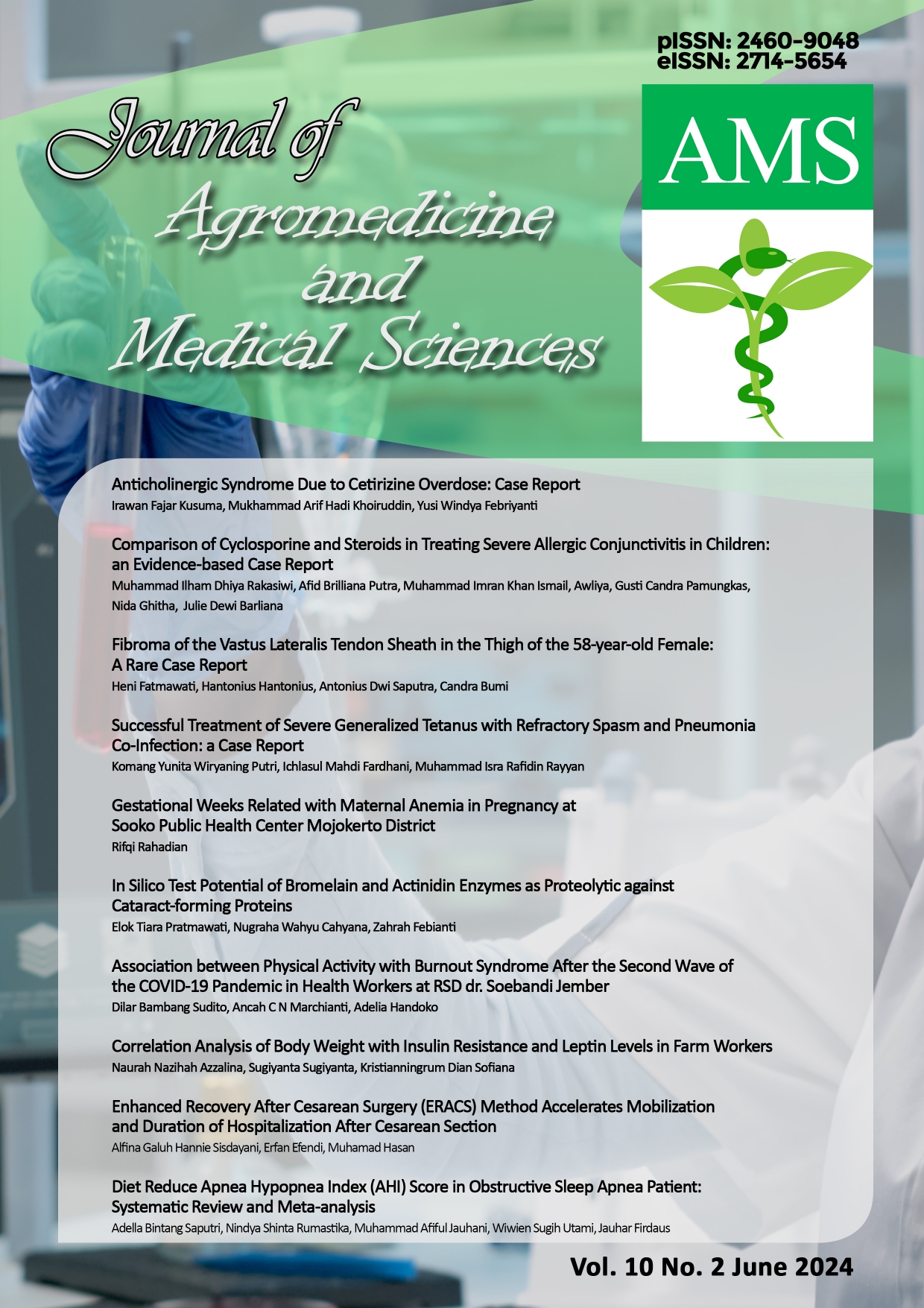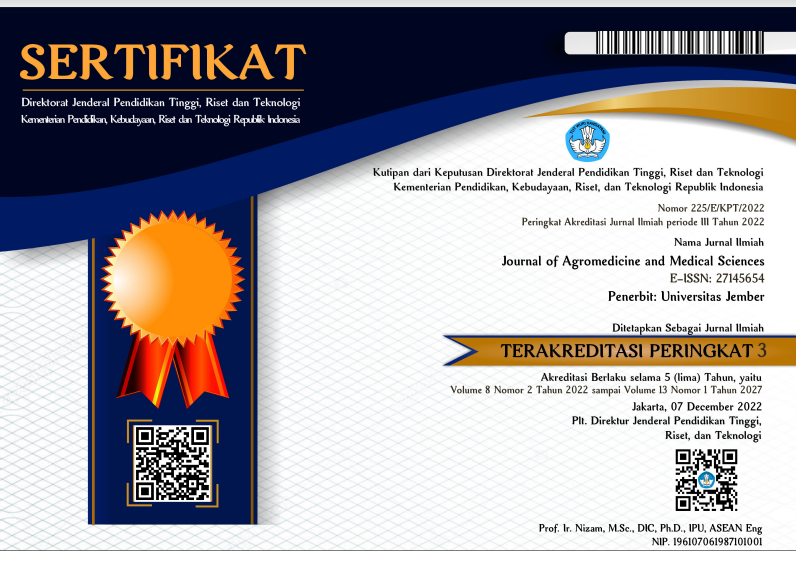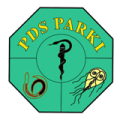Anticholinergic Syndrome Due to Cetirizine Overdose: Case Report
DOI:
https://doi.org/10.19184/ams.v10i2.44078Abstract
Anticholinergic toxicity can be the result of antihistamines use. Anticholinergic toxicity is pretty rare in second-generation antihistamines such as cetirizine. Using cetirizine in unreasonable doses will cause side effects. We report cetirizine intoxication due to overdose. A girl, 16 years-old came in with chief complaint syncope at school after consuming 5-6 tablets of cetirizine. The patient was being sent to the primary health center and experienced vomiting. Other symptoms experienced when the patient is conscious, such as nausea, dizziness, and dry mouth. On physical examination, it was found that both of the patient's eyes were dry, with a heart rate of 105 beats per minute. We examined liver function and kidney function tests, which showed that BUN, serum creatinine, SGOT, and SGPT levels were within normal limits. Symptoms that arise due to antihistamine toxicity include vasodilation and redness of the skin, anhidrosis, lack of sweat production, hyperthermia, mydriasis, hallucinations, delirium, and urinary retention. Antihistamines are anticholinergics that work as antimuscarinics. The action of cetirizine on M1, M2, and M3 receptors affects clinical manifestations of the patients. Cetirizine can also induce hepatic and renal toxicity. Understanding the dosage and use of cetirizine is necessary to prevent unwanted events and side effects.
Keyword: cetirizine overdose, anticholinergic syndrome






















